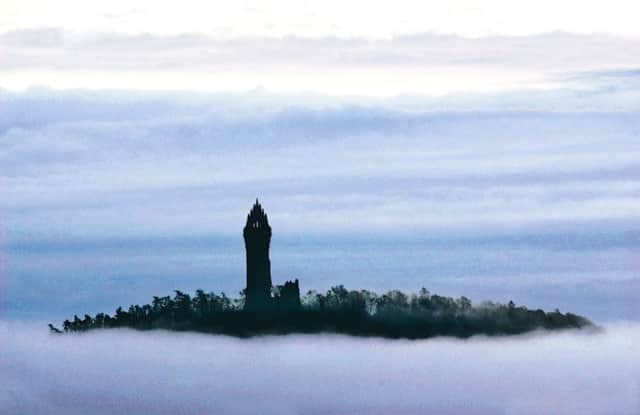Five famous Wallaces


1. Richard Wallace
Richard Wallace is the founder father of the Wallace Clan. Documented in the history books as Richard Wallensis of Riccarton, the name Wallace was derived from his surname ‘Wallensis’, the generic Latin term for the ancient Britons who originated from Strathclyde, Brittany and Flanders. The first record of Richard Wallace is his signature on an 1163 AD charter at Paisley Abbey where he was granted control of vast amounts of Strathclyde land. His territorial claim rapidly expanded, south to Craigie and North to Eldersie, as did the power and influence of his clan.
2. William Wallace
Sir William Wallace, a member of the Eldersie branch of the clan, was born in 1270 more than a century after his great-great-grandfather Richard Wallensis’ time. His place in history was firmly secured in his role as ‘The Patriot’ - leader of the uprising against the English occupancy in the first Scottish war of independence at Stirling in 1297. His victory indisputably elevated the status of the Wallace clan throughout medieval Scotland, yet the English troops regained control of Scotland the following year and during further attempts to mount guerilla campaigns against their occupancy, Wallace was captured by in 1305 and convicted of high treason. He suffered a gruesome execution in London, where he was hung, drawn and quartered.
3. John Wallace
Advertisement
Hide AdMore than a century after William Wallace’s death, General John Wallace reinforced the strength of his clan line in a further bid for independence when he was hailed the hero of the fifteenth century Battle of Sark. As the English army opened fired on the Scottish troops, John Wallace, fired by the same passion and fearlessness as his predecessor, was said to have called to his men: “Why should we stand still thus to be wounded? Follow me!” before leading a charge which commanded the Scottish army to victory and placed them in a position of strength against the English for the next ten years.
4. Professor William Wallace
Professor Wallace, born in Fife in 1768, devoted his life to the study of mathematics. By the age of twenty, he was a celebrated academic with a reputation as a renowned master of algebra, trigonometry, geometry navigations, and even astronomy. By 1819 William Wallace had taken the position of Chair of mathematics at the University of Edinburgh and upon his retirement due to ill-health in 1838, received the honorary degree of Doctor of Laws. In later years, he was highly regarded for his instrumental role in the erection of two of Edinburgh’s most famous monuments; the Observatory on Calton Hill and the statue of fellow mathematician John Napier, which today stands in the tower of Merchiston Castle.
5. Robert Wallace
Robert Wallace Esq. of Kelly became an elected MP for Greenock in 1833 and thereafter embarked upon a laborious thirteen year political career. Upon his resignation from the House of Commons in 1845, Robert Wallace turned his focus to curtailing the monopoly of his fellow politicians. He was among the first to expose errors in the Scottish judicial system and to push for post-office reforms, diminishing past abuses by supporting the introduction of the penny-postage scheme. His great services to his country, and his advocacy of the influence of public opinion in governance matters, were duly acknowledged when he was granted freedom of the cities of Glasgow, Aberdeen, Paisley, Perth, Dingwall, Inverness and Dornoch.